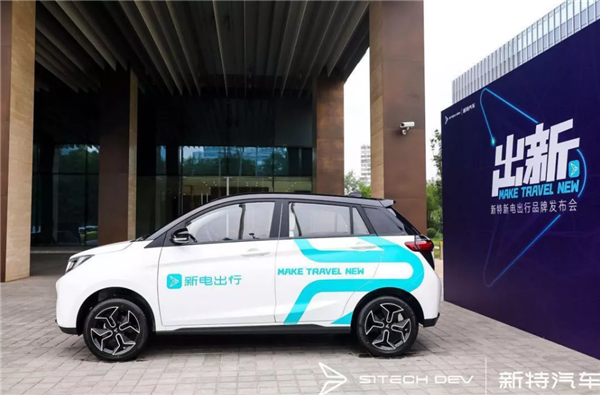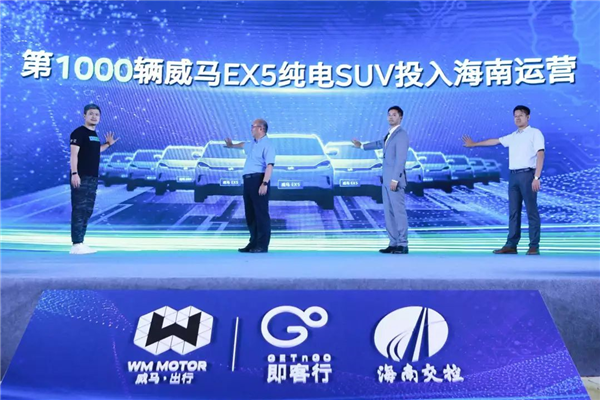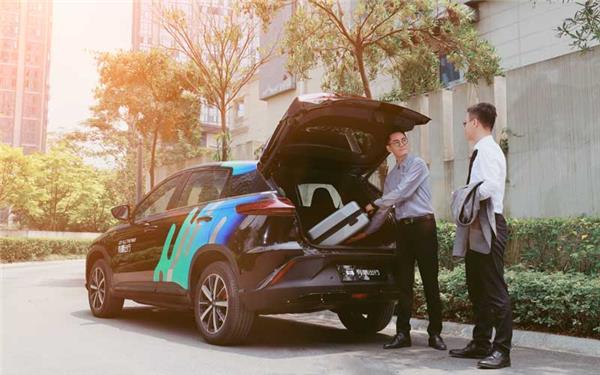Roundup of OEM-buoyed mobility service platforms unveiled in recent two months
Shanghai (ZXZC)- Chinese OEMs, including traditional automakers and startups, flocked to the mobility service area in recent two months as part of their efforts to drive the transition towards mobility service providers.

(Photo source: Sitech's WeChat account)
On June 27, Sitech launched its mobility service brand "Sitech Mobility" (in Chinese, "Xindian Chuxing") and announced that it has obtained the qualification to operate ride-hailing services. Meanwhile, the startup forged the strategic partnership with Meituan Dache, Ctrip.com and AutoNavi for the purpose of building a more comprehensive operation network that embraces various mobility resources.
As early as March 20, 2019, Sitech Mobility was granted with the license to operate online ride-hailing service countrywide and then got the certificates from local governments of Guian New Area in Guizhou Province and Chengdu, capital of Sichuan Province, on April 30 and May 13 respectively.

(Photo source: WM Motor's WeChat account)
One day ago, GETnGO, the smart mobility service brand owned by startup WM Motor, claimed that the travelling sub-brand it jointly builds with Hainan Province Transport Investment Holding Company Limited had so far deployed a total of EX5 all-electric SUVs in Hainan Province.
All BEVs deployed on the island will serve users in such areas as the tourism car rental, the enterprise-used long-term vehicle rental, the shuttle between hotels and scenic spots, ride-hailing service and urban car-sharing.

(Photo source: ON TIME's WeChat account)
On June 26, GAC Group's mobility service platform "ON TIME" formally launched its trial operation in Guangzhou. Such hotter-selling NEV models as the Trumpchi GE3 530, the Aion S and the Toyota Levin Hybrid will be deployed on the platform at the initial stage.
The ON TIME is principally invested by GAC Group (35%), Tencent (25%) and Guangzhou Public Transport (10%) and involves other investors including the ride-hailing giant Didi.
At the same time, GAC Group and Didi Chuxing cemented their cooperation after they forged a strategic partnership in April 2018. This time, both parties are going to carry out collaboration in such areas as vehicle promotion, customized services, operation as well as ride-hailing service and autonomous driving.

(Photo source: XPENG Motors official website)
Another EV startup XPENG Motors expanded its business footprint into ride-hailing service area in May by kicking off the trial operation of Pengster, its pilot chauffeur-driven car-hailing service in Guangzhou.
The pilot project, using a fleet of the startup's intelligent G3 all-electric SUVs, would employ a dedicated team comprising professionally trained, qualified drivers.
With the development of technology and the prosperity of sharing economy, consumers have gradually accepted the concept of “use” instead of “own”. Currently, the emerging market has attracted multiple players of which a large part of them are involved with OEMs, including SAIC Motor, BAIC Group, Changan Automobile, Great Wall Motor, Geely and Dongfeng Motor. In addition, some global OEMs such as BMW and Daimler have used their own car brands based on the existing international mobility service experience to develop carsharing business in China. Those players can be classified into the B2C platform.
Aside from the OEM-backed brands, there is another major type of operators, which is represented by Didi and Meituan, focusing on the business mode of C2C. Under this mode, platforms can utilize private vehicles for resource integration, while also face such problems as security risk, poor service and illegal compliance. To date, Didi still occupies a large share in China's ride-hailing market, but the situation has been gradually changed with more and more OEMs diving into this area. However, for both traditional OEMs and startups, the biggest issue they confront now is still how to gain profits.

